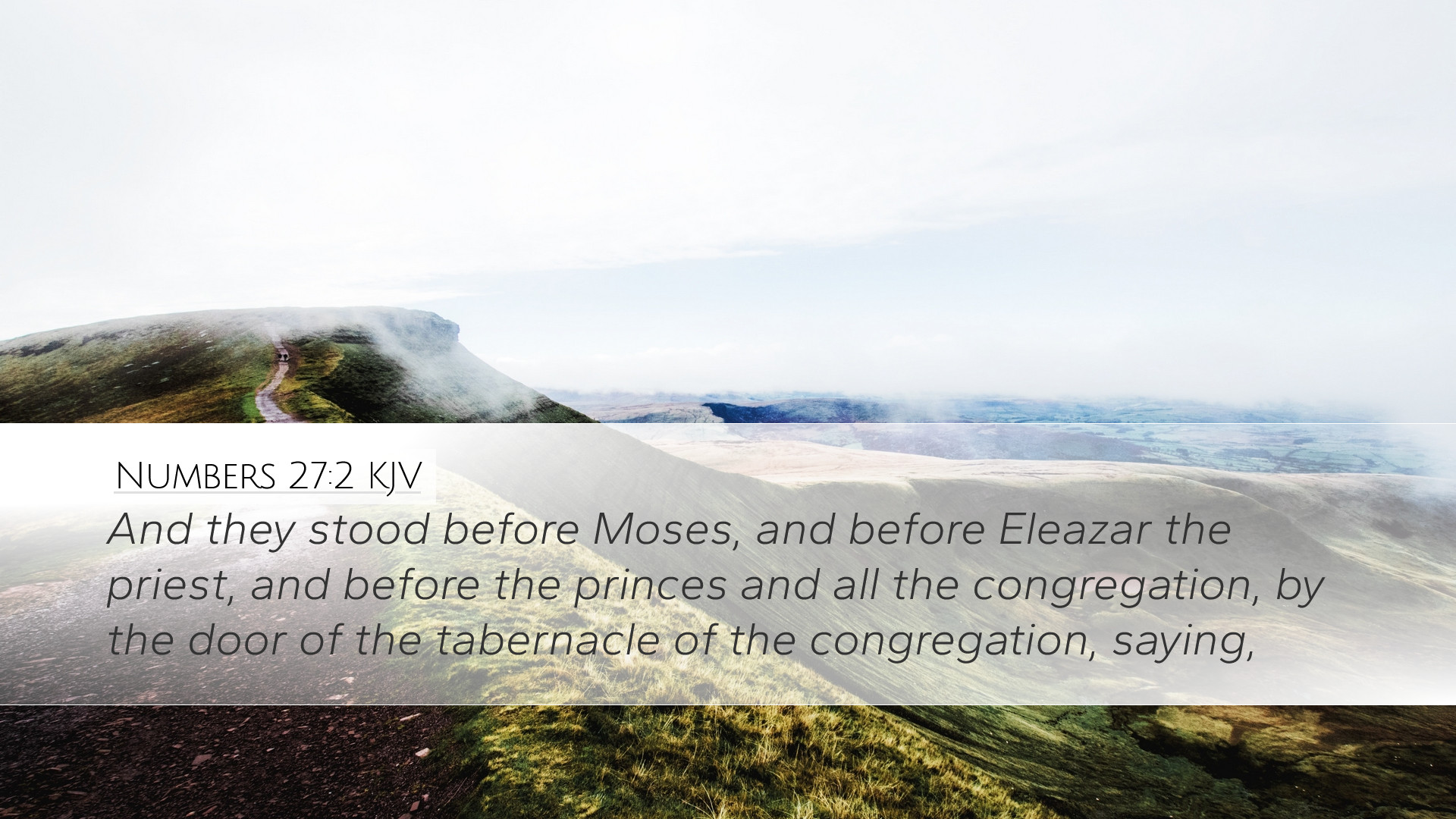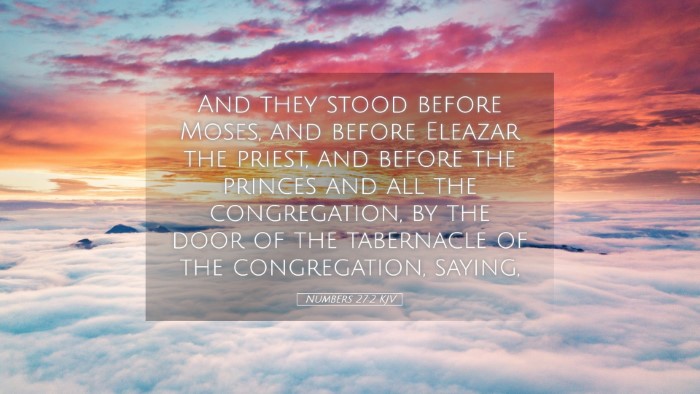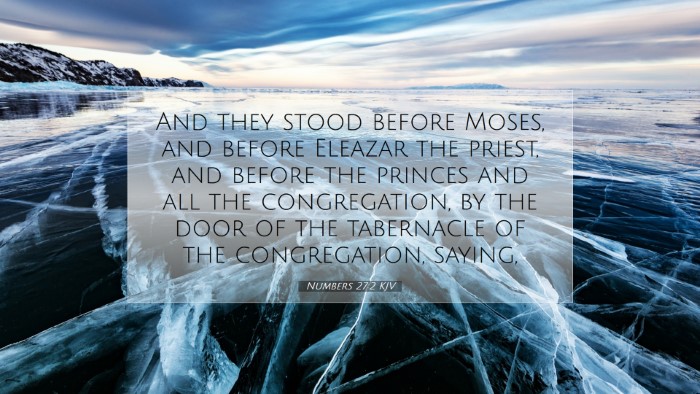Commentary on Numbers 27:2
Numbers 27:2 states:
"And they stood before Moses, and before Eleazar the priest, and before the princes and all the congregation, at the door of the tabernacle of the congregation, saying,"
Context and Background
This verse is pivotal as it introduces a significant moment in Israel's history. The context is set within the wilderness journey of the Israelites, as they prepare to enter Canaan under Joshua's leadership. Here, we see a movement towards the establishment of the inheritance of the tribes in the Promised Land.
Insights from Matthew Henry
Matthew Henry's commentary provides profound insights into the nature of the plea made by the daughters of Zelophehad. He emphasizes the urgency of their case, highlighting that they stood before key leaders—Moses, Eleazar the priest, and the princes—demonstrating the gravity of their request for an inheritance. This scene underscores the importance of representation and voice in communal matters:
- Advocacy: The daughters are advocates of their own cause, showing that they sought what was rightfully theirs.
- Courage and Clarity: They approached the leaders with clarity and a sense of justice, which is a model for seeking fairness within the community.
Insights from Albert Barnes
Albert Barnes elaborates on the significance of the daughters’ actions and the public nature of their request. He observes that they were not mere bystanders; instead, they were taking initiative:
- Public Gathering: Their stand before the congregation at the door of the tabernacle signifies transparency and a call for communal acknowledgment of their cause.
- Divine Right of Inheritance: Barnes insists that their expectation of an inheritance speaks to a broader theological premise—the right to inheritance in God’s promises, not limited by gender.
Insights from Adam Clarke
Adam Clarke provides a theological interpretation of this moment, discussing the implications of their request for modern readers, especially concerning inheritance laws:
- Legal and Social Progress: This instance challenges the notions of societal norms regarding women's rights during biblical times, showcasing an early form of empowerment.
- Imparting Justice: Clarke notes that God’s justice is not reserved for one group; rather, it extends to all who seek it genuinely, illuminating the verse's application beyond nationality and gender.
Theological Themes
Several overarching theological themes emerge from this verse, which resonate deeply across various contexts:
- God’s Justice and Righteousness: The daughters’ request is emblematic of God’s justice. God’s will is for fairness and equality, inviting all to partake in His promises.
- Community and Leadership: The act of standing before the leaders embodies the role of the community in seeking righteous leadership that listens to its members.
- Courage in Advocacy: They exemplify the need for courage when pursuing justice, serving as a model for individuals and groups today who stand against societal injustice.
Application for Pastors and Theologians
The implications of Numbers 27:2 offer vital lessons for pastoral ministry and theological reflection:
- Encouraging Advocacy: Pastors are encouraged to cultivate a church environment where members feel empowered to voice their concerns and seek justice, mirroring the actions of Zelophehad's daughters.
- Understanding Inheritance: The concept of inheritance in God’s kingdom can be taught in relation to the participation of all believers, ensuring that issues of equity are addressed within church practices.
- Justice in Action: Churches should be vigilant in championing social justice, taking cues from this passage in their outreach and community engagement efforts.
Conclusion
Numbers 27:2, while a specific historical account, opens wider conversations about justice, inheritance, and community dynamics. The combined insights from Henry, Barnes, and Clarke provide a robust framework for understanding this pivotal moment. It serves as a reminder of the lasting message of equity and divine justice intended for all of God's people.


